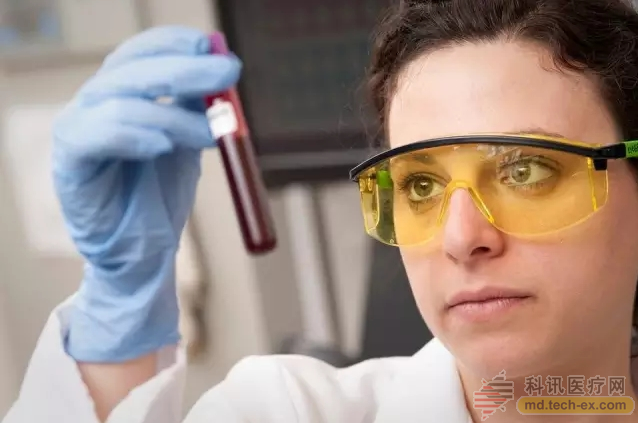Release date: 2017-01-05

Perthera was founded in 2013 by George Mason University researcher Emanuel Petricoin and venture capitalist Dendy Young. Perthera itself does not do experimental analysis, but acts as a distributor for collecting and transporting samples of cancer patients in the middle, helping doctors to obtain information on genomes, proteomes, etc. from molecular testing companies. At the same time, Perthera is also building a database of patient treatment history and test results to guide assisted patient care.
Recently, Perthera researchers published a study on Oncotarget to compare the results of liquid biopsy and tissue biopsy in patients with pancreatic cancer. They found significant inconsistencies between the two methods, suggesting that current tissue biopsy remains the gold standard for tumor diagnosis, and liquid biopsy is not a substitute for tissue biopsy.
Inconsistent results of liquid biopsy and tissue biopsy in patients with pancreatic cancer
First, the researchers used two blood-based NGS assays to analyze 34 patients with pancreatic cancer: 26 of them underwent Guardant Health's Guardant360 assay, which sequenced 68-gene panels of cfDNA based on the Illumina HiSeq 2500 platform; The patient underwent Cynvenio's ClearID assay, which was based on panel sequencing of 50 genes on the Thermo Fisher IonTorrent PGM platform. In addition, of the 34 patients, 23 patients underwent tumor tissue biopsy using Foundation Medicine, Foundation Medicine, which performed panel sequencing of 321 genes based on the Illumina HiSeq 2500 platform.
The results showed that liquid biopsy detected an average of 2 gene mutations in 19 patients, and tissue biopsy detected an average of 13 gene mutations per patient, which may be due to more genes detected by tissue biopsy. .
The researchers compared the results of four common mutations in pancreatic cancer in 23 patients who underwent both liquid biopsy and tissue biopsy. They found that 9 patients (39%) had consistent KRAS variants, but 14 biopsy did not detect 14 KRAS mutations detected by tissue biopsy; meanwhile, 6 patients (26%) had consistent TP53 variants, but Blood tests did not detect 15 TP53 mutations detected by tissue biopsy; in addition, no CDKN2A or SMAD4 mutations were detected in blood biopsies, and tissue biopsies detected both mutations in 11 and 6 patients, respectively.
The author of the article, Petricin, said that because KRAS mutations occur in about 90% of patients with pancreatic cancer, the results of this mutation can indicate the sensitivity of a test. Therefore, the inconsistency of KRAS results needs to be paid enough attention.
However, Justin Odegaard, senior medical director and laboratory director at Guardant Health, said the patients in this study were not suitable for analysis with the Guardant 360 test. Almost all of the subjects in the study received chemotherapy prior to the liquid biopsy, which may have a strong effect on the level of cfDNA, and some subjects have responded to the current treatment or the condition has stabilized. The purpose of the Guardant360 test is to select a treatment for the patient, primarily for patients who are considering treatment or who are considering a change of treatment after the disease has progressed.
Next, the researchers analyzed 17 patients with higher tumor burden and progression, and found that the proportion of KRAS mutations detected by liquid biopsy increased: 41% (7 out of 17) vs 29% (34 out of 10), but still lower than expected. In contrast, 9 of these 17 patients underwent tissue biopsy, and KRAS mutations (78%) were detected in 7 of them.
Petricoin said that although the results of liquid biopsy and tissue biopsy observed in this study are inconsistent, liquid biopsy is still an important source of patient tumor information, especially for tumors that are difficult to perform in tissue biopsy.
References: A pilot study evaluation concordance between blood-based and patient-matched tumor molecular testing within pancreatic cancer patients participating in the Know Your Tumor (KYT) initiative. DOI:10.18632/oncotarget.13225
Source: Sequencing China
Double Sided Nano Tape,Nano Double Sided Tape,Double Sided Magic Tape,Reusable Double Sided Tape
Kunshan Jieyudeng Intelligent Technology Co., Ltd. , https://www.jerrytapes.com